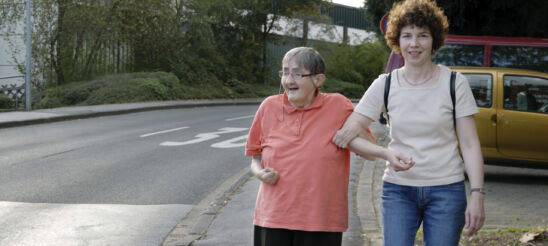Senior Leaders are a key component of all types of business model where there is a workforce to lead, manage and support. The broad purpose of the occupation is to provide clear, inclusive and strategic leadership and direction relating to their area of responsibility within an organisation. Typically, this involves setting, managing and monitoring achievement of core objectives that are aligned to the overall strategic objectives of their organisation’s Board (or equivalent).
This occupation is found in small, medium and large organisations in the public, private or third sectors including health, finance, engineering, manufacturing, business and professional services, education, retail, leisure, technology and construction.
In a smaller organisation they are also likely to contribute to the execution and achievement of these strategic objectives. A Senior Leader influences at a higher organisational level, including sometimes at Board (or equivalent) level, and sets the culture and tone across their area of responsibility. They may work in varied environments including in an office, onsite, or remotely and demonstrate a high level of flexibility and adaptability to meet the needs of the organisation.
Depending on the size of their organisation, a Senior Leader may be responsible for reporting results relating to their area of responsibility to a Board, trustees, shareholders, executive team or to other senior management within the organisation.
- Taught Blended Workshops
- Named Assessor
- Assessment of practice
- Portfolio of evidence produced
- Dedicated resources
- Set the overall strategic direction of their area of responsibility in partnership with the Board (or equivalent), encouraging employees to buy into the organisation’s vision.
- Lead on the development and critical review of operational policies and practices within their area of responsibility, to ensure they are aligned to the needs of the organisation and remain fit for purpose and sustainable.
- Lead and influence agreed projects to deliver organisational strategy such as change and agile transformation programmes, diversification, new product implementation, and customer experience improvement.
- Make decisions about organisational resource requirements (budgets, people, technology) based on strategic insight and reliable evidence.
- Lead and respond to crisis management, assessing the risks and opportunities which could affect business/department performance, and finding solutions that meet the needs of both the organisation and its customers/stakeholders in a responsible and ethical way.
- Lead people development including talent management, succession planning, workforce design, and coaching, and mentoring arrangements for people within their area of responsibility.
- Promote an ethical, inclusive, innovative and supportive culture that generates continuous business improvement.
- Report to the Board (or relevant governance/management structure) on the progress of their operational activities towards achieving business goals.
- Cultivate and maintain collaborative relationships with key senior internal and external stakeholders to influence key decision makers as appropriate.
- Shape the approach to external communications for their area of responsibility and ensure it aligns with any wider organisational communications strategy
- Proactively keep up to date with social, economic and technological trends and developments relevant to their area of responsibility and wider organisation, and promote innovation to address changing requirements and to take advantage of new opportunities.
- Ensure that their area of responsibility is compliant with internal governance, such as any assurance framework requirements, and with external governance, such as any regulatory and statutory requirements.
This standard aligns with the following professional recognition:
- Chartered Management Institute for Chartered Manager or Chartered Fellow individual member grade
- The Institute of Leadership for Management for Fellow member grade
Early Years Lead Practitioner (Sept 2024)
The broad purpose of the occupation is to be a proactive and influential practitioner, working directly with children, skilfully leading day to day practice at an operational level. As active practitioners they are effective role models of play based learning, supporting others to develop their own practice.
As active practitioners they are effective role models of play based learning, supporting others to develop their own practice. They are highly skilled professionals who take an operational lead for the care, learning and development of all young children within their care, adapting to individual needs providing inclusive and holistic provision. They engage with sector developments both locally and nationally, with a commitment to developing their own professional and educational competencies.
An employee in this occupation will be responsible for supporting the quality of learning and development in their setting. They lead on the operational aspects of this provision and are typically responsible for leading other practitioners, an aspect or environment such as; Communication and Language, Planning and Assessment, Forest School, Physical Activity and Nutrition. They usually report directly to the head of the setting (The Manager, The Leader, The Director).
Typical job titles include; Assistant manager, Deputy manager, Early years coordinator, Early years officer, Early years support worker, Education welfare officer, Health play specialist, Hospital play worker, Lead practitioner, Pastoral care manager, Specialist practitioner in child development (health), community nursery nurse
- Taught Blended Workshops
- Named Assessor
- Assessment of practice
- Portfolio of evidence produced
- Dedicated resources
- Promote the health and well-being of all children, self-regulation and resilience through learning rich environments, opportunities for challenging play and a healthy attitude towards risk taking.
- Provide playful, sensitive interaction opportunities that reflect children’s needs, interests and motivations in order to facilitate and extend deep level learning.
- Participate in and lead daily routines and practice, including childrens’ personal care, play and maintaining the physical environment.
- To be an effective key person and advocate for the child, supporting the child’s developmental, emotional and daily needs within a secure and caring relationship. To ensure the effectiveness of the key person approach across the aspect or environment for which they are responsible.
- To take the lead and provide support in disseminating best practice in the use of observation, assessments and planning to meet children’s needs and extend their holistic development within the aspect or environment for which they are responsible.
- Promote, demonstrate and facilitate a clear understanding of diversity and equality to support all children, including those with additional needs, those of high ability, those with English as an additional language and those with disabilities. To be able to use and evaluate distinctive approaches which engage and support inclusivity of all children within their social and cultural context.
- Ensure full compliance with all safeguarding legislation, policies and strategies at a national, local and setting based level are promoted, implemented and embedded respectfully within practice, providing appropriate support to colleagues as, or supporting, the Designated Safeguarding Lead.
- Demonstrate leaderful practice through the effective deployment of resources and practitioners keeping the child’s voice and needs central to practice.
- Reflect and build on practice through ongoing professional enquiry and action research to contribute to the pedagogical approach of their setting. To be accountable for day to day practice, longer term planning, management and training within the specific aspect or environment for which they are responsible.
- Establish engaging, inclusive and collaborative relationships and participate in multiagency meetings. Enable and facilitate practitioners to develop professional relationships with parents, carers and multi-agencies to meet the individual needs of the children.
- Commit to becoming a reflective practitioner, enhancing skills and knowledge to improve pedagogical practice. Guide and support the development of the reflective practice of others.
- Initiate continuing professional development opportunities in response to identification of strengths and weaknesses both personally and within your team. Provide constructive feedback on points of practice on an informal day to day basis and contribute to formal performance management as necessary.
- Ensure compliance with all Health and Safety legislation, policies and strategies at a national, local and setting based level.
- Maintain effective administrative systems including development records, assessment, report writing and record keeping, such as risk assessments and safeguarding concerns.
- Work in collaborative partnership with parents and carers in the planning, implementation and review of strategies in place to support children’s experience, holistic development, learning and progress.
- To lead and manage across the area, aspect or environment for which they are responsible for.
This qualification allows candidates to progress into employment or to the following apprenticeship standards:
- Level 6 Teacher
- Level 6 Early Years Teacher (In development)
Early Years Educator (Sept 2024)
The broad purpose of the occupation is to provide high quality early education and care to children. Through an evidence based approach, they provide opportunities and learning experiences for all children, including those with special educational needs and disabilities (SEND). Early years educators follow the Early Years Foundation Stage (EYFS) requirements set by government for the learning, development, and care of children from birth to 5 in both indoor and outdoor environments
An employee in this occupation will be responsible for ensuring a safe and secure environment for children’s learning. They ensure that the learning environment and provision is inclusive and supports all children, and demonstrate a clear understand of equality, diversity, and inclusion. Early years educator’s teach and facilitate children’s learning play. They apply the observation, assessment, and planning cycle to support progress and children’s development. An early years educator will act as the key person for one or more children within their setting. They may play a leadership role within the setting or may act under the supervision of a manager.
Typical job titles include; Childminder assistant, Early years educator, Early years worker, Nursery educator, Nursery nurse, Nursery worker.
- Taught Blended Workshops
- Named Assessor
- Assessment of practice
- Portfolio of evidence produced
- Dedicated resources
- Support children’s learning and development through applying knowledge of pedagogy and the observation, assessment, and planning cycle.
- Develop secure and supportive relationships with children and families as the key person for children in their care, advocating for those children.
- Provide respectful and responsive physical and emotional care to children, promoting health and wellbeing.
- Work with key individuals in children’s lives (for example parents, families, and carers) to improve all children’s outcomes and wellbeing.
- Work in partnership with other organisations and agencies to support children’s learning, development, health and wellbeing.
- Support the implementation of change to improve practice.
- Initiate and engage in continuous professional development, underpinned by reflective practice.
- Ensure compliance with child protection and safeguarding legislation, policies, and procedures.
- Work in ways that promote and support equality, diversity, and the inclusion of all children, respecting their social and cultural context.
- Ensure compliance with Health and Safety legislation, policies, and procedures.
- Use technology to record and update information for example observations, assessments, reports, risk assessments, and safeguarding concerns.
- Promote and engage in children’s play. Support all children to create and adapt the environment to reflect their interests and enable their learning and development.
- Ensure legal requirements of statutory frameworks are met within policy, procedure, and practice.
This qualification allows candidates to progress into employment or to the following apprenticeship standards:
- Level 5 Early Years Lead Practitioner
Teaching Assistant (Sept 2024)
The broad purpose of the occupation is to support the class teacher to enhance learners’ progress and development either in groups or individually. Teaching Assistants ensure that learners understand their work, know their learning objectives, and display positive learning behaviours in order to make progress.
Teaching Assistants deliver individual and small group teaching and apply a range of strategies to support learners of different abilities under the professional direction and supervision of a qualified teacher. Teaching Assistants may support learners with special educational needs and disabilities and learners with social, emotional, and mental health vulnerabilities.
An employee in this occupation will be responsible for delivering individual and small group teaching and adapting planning under the direction of a teacher; implementing safeguarding policies and safe practice; working effectively with other education professionals; promoting positive learning behaviours; and supporting the development of a safe and stimulating learning environment. They will work within a framework of national legislation regarding safeguarding, and within the policies and procedures of their individual education organisations.
- Taught Blended Workshops
- Named Assessor
- Assessment of practice
- Portfolio of evidence produced
- Dedicated resources
- Contribute to the overall ethos and aims of the organisation and promote diversity, inclusion, equality and acceptance of all learners in line with school policies, including by challenging stereotyped views, bullying or harassment.
- Implement safeguarding polices and safe practice, including online safety, in line with legislation, policies, and procedures including maintaining confidentiality.
- Work in partnership and liaise with other professionals (such as the teaching staff, SENDCo, or external advisors) and parents/carers to support all learners’ learning.
- Reflect on their own practice and identify appropriate professional development opportunities with the support of colleagues.
- Understand the specific needs of learners and use strategies to support all learners to achieve their learning goals.
- Promote engagement and teach learning behaviours to support the development of independent learners.
- Establish positive relationships with learners and promote positive behaviours, consistently applying the school’s behaviour policy.
- Support the social, emotional, mental health, wellbeing and personal care of all learners in line with organisational policy and procedures.
- Deliver individual and small group teaching within clearly defined/planned parameters in partnership with the teacher and other professionals.
- Contribute to assessment and planning by supporting the monitoring, recording, and reporting of learner outcomes and participation as agreed with the teacher.
- Support the development of a stimulating and safe learning environment by contributing to the selection and preparation of teaching resources that meet the diverse needs and interests of learners.
- Support or lead enrichment activities for example visits, out of school activities and in school clubs.
This qualification allows candidates to progress into employment or to the following apprenticeship standards:
- Level 3 Early Years Educator
- Level 5 Early Years Lead Practitioner
Level 5 Learning and Skills Teacher (Sept 2024)
The broad purpose of the occupation is to ensure that students achieve the best possible knowledge, skills and behaviours. Learning and Skills Teachers do this by planning and delivering teaching that is current, comprehensive and challenging, and that inspires students to engage, progress and achieve their full potential.
This occupation is found in all parts of the Further Education and Skills Sector (FES), usually in settings where students are aged 16 and above (a small number of teachers may teach 14–16 year olds in alternative provision). The majority of Further Education, Learning and Skills Teachers will work in FE colleges (whether general or specialist), independent training providers (ITPs), Adult Community Learning (ACL) providers or offender learning.
A small number may work as trainers in large organisations. Teaching can be delivered at a range of levels including essential skills generally up to Level 3 including, academic, vocational and technical education, some teachers may deliver subjects up to post-graduate level; it will also cover a broad range of both academic and technical subject/sector areas. Many Learning and Skills Teachers are dual professionals drawing on their technical and vocational as well as academic experience and qualifications to provide a high-quality learning experience.
An employee in this occupation is responsible for helping to prepare each of their students for progression to/or within employment or to further study. To deliver this to a diverse group of students, including those with special educational needs, a Learning and Skills Teacher needs to be flexible, innovative, and adaptable, changing their behaviour and teaching style to suit the environment and level of their students. A Learning and Skills Teacher needs to have a sound understanding of pedagogy and regularly engage with robust evidence of effective teaching and learning methods and practice relevant to their subject area(s). A Learning and Skills Teacher typically has significant autonomy and needs to demonstrate consistently high standards of personal and professional conduct and is accountable for their professional development. A Learning and Skills Teacher may be responsible for the managing of others, as well as managing budgets.
- Taught Blended Workshops
- Named Assessor
- Assessment of practice
- Portfolio of evidence produced
- Dedicated resources
- Promote a passion for learning and set high expectations of all students and support their personal and skills development
- Maintain a focus on outcomes, for all students, so that they recognise the value of their learning and the future opportunities available to them .
- Demonstrate, maintain and evidence excellent pedagogy, subject, curriculum and industry knowledge and practice
- Plan, deliver and evaluate effective evidence-informed teaching using assessment, relevant systems and safe use of technology to support learning
- Work in a manner that values diversity, and actively promote equality of opportunity and inclusion by responding to the needs of all students
- Model professional relationships with students, colleagues and stakeholders that support the highest quality education and training
- Work within professional boundaries, legal and ethical standards to set clear expectations for engaging in learning for all students
- Undertake relevant roles and duties and model sustainable practices, having regard to professional standards, demonstrating resilience and adaptability when dealing with challenge and change
- Support students with their next steps for progression and learning by providing appropriate information, advice, and guidance
This qualification allows candidates to progress into employment or to the following apprenticeship standards:
- Level 6 Teacher.
Level 4 Learning and Skills Mentor (Sept 2024)
The purpose of the learning and skills mentor occupation is to support individuals and groups with their learning and development towards agreed goals. They will do this by working within ethical and legal frameworks to ensure a high standard of mentoring practice. They will work collaboratively with stakeholders to inclusively meet the individual needs of the mentee. They will be committed to their own professional development and reflective practice as a mentor and within their sector.
They will typically work in an environment in their organisation where they are the knowledgeable other. They will work in a variety of locations and environments where mentoring activity may be undertaken face to face or remotely.
In their daily work, an employee in this occupation may interact with other professionals at any level of seniority in the organisation and the sector, such as: supervisors, managers, trainees, other experienced practitioners and where necessary, internal/external professionals to support meeting the individual mentee needs.
This occupation is found in the public, private and voluntary sectors in national and multinational organisations. The role of the learning and skills mentor can be found in all sectors where training and development is required. For example, but not limited to, healthcare, military, manufacturing, production, business and professional, education, leisure, construction, creative, technology.
- Taught Blended Workshops
- Named Assessor
- Assessment of practice
- Portfolio of evidence produced
- Dedicated resources
- Plan, conduct and record mentoring activities to support the progression of the mentee working within legal and ethical frameworks, including confidentiality and safeguarding.
- Use strategies to establish and maintain expectations and boundaries of mentoring contract, including recognising starting points of mentee, agreed development needs, potential barriers to development and where relevant, other stakeholders needs.
- Select and use mentoring models, tools and techniques to support mentee to make desired changes, demonstrating responsiveness to the individual mentee needs.
- Demonstrate awareness of own values, beliefs and behaviours and their effect on the mentor/mentee relationship.
- Provide support to the mentee providing information, advice and guidance, working within own professional boundaries and recognising requirements for referral to other professional services where required.
- Establish rigorous evaluation processes with mentee to support reflection on effectiveness of mentoring relationship.
- Evaluate and reflect on effectiveness of own practice for the purpose of self-development.
- Make sustainably informed decisions in approaches used to plan, conduct, record and evaluate mentoring practice.
- Maintain records of mentoring practice and recording of continual professional development activities
This qualification allows candidates to progress into employment or to the following apprenticeship standards:
- Level 5 Learning and Skills Teacher.
Level 3 Learning and Skills Assessor (Sept 2024)
The broad purpose of this occupation is to assess candidates against agreed standards of competence using a range of assessment methods. The learning and skills assessor will plan, conduct assessment activities and record and report on assessment decisions to the learner and other relevant stakeholders. They will support the progression of the learner through feedback of assessment decisions, setting of ongoing realistic learning goals and referral to other professionals if required.
This occupation is found in the public, private and voluntary sectors in national and multinational organisations. The role of the learning and skills assessor can be found in all sectors where learning, training and development is required. For example, but not limited to, healthcare, military, manufacturing, production, business and professional, education, leisure, construction, creative, technology. They will contribute to the quality cycle of the organisation and actively contribute to standardisation and moderation of assessment decisions. The learning and skills assessor will be committed to their own continual professional development to maintain occupational competency in their sector. They will typically work in an environment in their organisation where they are assessing competency. They will work in a variety of locations and environments including practical vocational settings where activity may be undertaken face to face or remotely.
- Taught Blended Workshops
- Named Assessor
- Assessment of practice
- Portfolio of evidence produced
- Dedicated resources
- Plan and conduct inclusive assessment using a range of assessment methods and approaches working within organisational, legal, and ethical frameworks, including confidentiality and safeguarding.
- Use a range of communication methods to provide timely constructive feedback on assessment decisions to learners and where relevant, other stakeholders.
- Participate in standardisation, moderation and quality assurance of assessment decisions to contribute to the quality assurance of own and others assessment practice and the organisations quality cycle.
- Develop and maintain current and accurate records of assessment plans and tracking of assessment decisions, using agreed communication methods to share with relevant stakeholder, recognising confidentiality and privacy.
- Use assessment outcomes and data to support the ongoing setting of individual learning goals and progression toward timely achievement of intended outcomes.
- Provide information, advice and guidance, working within own professional boundaries and recognising requirements for referral to other professional services where required.
- Recognise the role of holistic assessment in supporting the development of wider skills for the learner.
- Make sustainably informed decisions in approaches used to plan, conduct, record and evaluate assessment activities.
- Undertake and maintain records of continual professional development activities in their sector to maintain occupational competency, including sustainable practice and digital literacy.
This qualification allows candidates to progress into employment or to the following apprenticeship standards:
- Level 4 Learning Skills Mentor.
- Level 5 Learning and Skills Teacher.
Community Health and Wellbeing Worker
Community Health and Wellbeing Workers are a rapidly expanding workforce supporting the increasing emphasis across government departments on improving the health of local people and communities by preventing poor health and tackling inequalities.
This occupation is found in different organisations and is commissioned by a range of agencies, including local government, the NHS, and other funders such as voluntary, community and social enterprise (VCSE) organisations. Their work is informed by the wider social determinants of health, such as the social, cultural, political, economic, commercial and environmental factors that shape the conditions in which people are born, grow, live, work and age.
- Taught Blended Workshops
- Named Assessor
- Assessment of practice
- Portfolio of evidence produced
- Dedicated resources
- Preventative approaches to promote the health and wellbeing of individuals, groups and communities, addressing the wider determinants of health and causes of ill-health
- Help communities to build local resilience and identify strengths, capacity and resources that support their health and wellbeing
- Provide informed advice about local services and projects that support health and wellbeing
- Manage referrals from a range of agencies, professionals and through self-referral
- Apply behavioural science to help people find practical solutions for better health and wellbeing
- Implement actions set out in strategies and policies that promote health and wellbeing at community level
- Communicate public health messages and information to promote health and wellbeing at an individual, group and community level
- Manage data and information and contribute to the evaluation of projects and services
- Operate within legal and ethical frameworks that relate to the promotion and protection of the public’s health and wellbeing
- Take responsibility for personal and professional development in line with organisational protocol
This qualification allows candidates to progress into employment or to the following apprenticeship standards:
- Level 4 Lead Practitioner in Adult Care.
- Level 5 Leader in Adult Care.
Level 2 Customer Service Practitioner
The role of a customer service practitioner is to deliver high quality products and services to the customers of their organisation. Your core responsibility will be to provide a high quality service to customers which will be delivered from the workplace, digitally, or through going out into the customer’s own locality.
As a customer service practitioner you may have one-off or routine contacts and include dealing with orders, payments, offering advice, guidance and support, meet-and-greet, sales, fixing problems, after care, service recovery or gaining insight through measuring customer satisfaction. You may be the first point of contact and work in any sector or organisation type.
- Taught Blended Workshops
- Named Assessor
- Assessment of practice
- Portfolio of evidence produced
- Dedicated resources
- Knowing your customers
- Understanding the organisation
- Meeting regulations and
legislation - Systems and resources
- Your role and responsibility
- Customer experience
This qualification allows candidates to progress into employment or to the following apprenticeship standards:
- Level 3 Business Administrator.
- Level 3 Team Leader/Supervisor.
Level 3 Business Administrator
Business administrators have a highly transferable set of knowledge, skills and behaviours that can be applied in all sectors. The role may involve working independently or as part of a team and will involve developing, implementing, maintaining and improving administrative services.
The business administrator is expected to deliver their responsibilities efficiently and with integrity – showing a positive attitude. The role involves demonstrating strong communication skills (both written and verbal) and adopting a proactive approach to developing skills. The business administrator is also expected to show initiative, managing priorities and own time, problem-solving skills, decision-making and the potential for people management responsibilities through mentoring or coaching others.
- Taught Blended Workshops
- Named Assessor
- Assessment of practice
- Portfolio of evidence produced
- Dedicated resources
- Record & document production
- Communication
- Decision making
- Interpersonal skills
- Quality
- Planning & Organisation
- Project management
This qualification allows candidates to progress into employment or to the following apprenticeship standards:
- Level 3 Team Leader Supervisor.
- Level 5 Operations or Departmental Manager.














